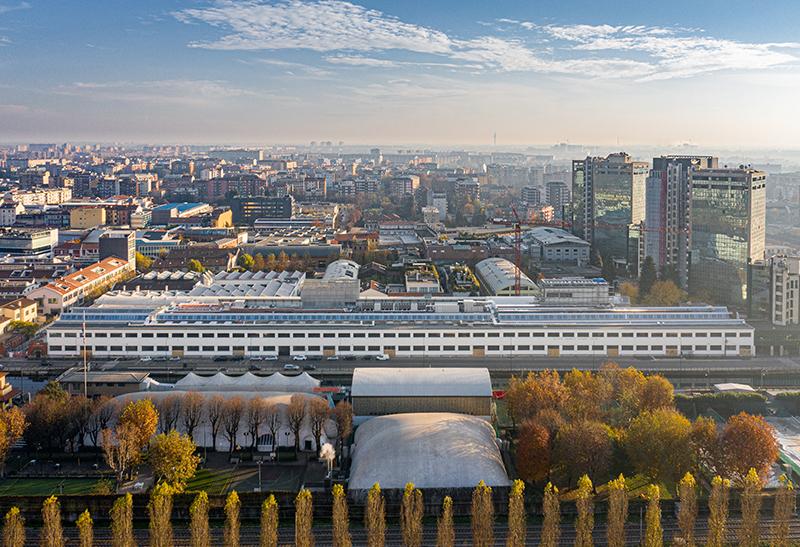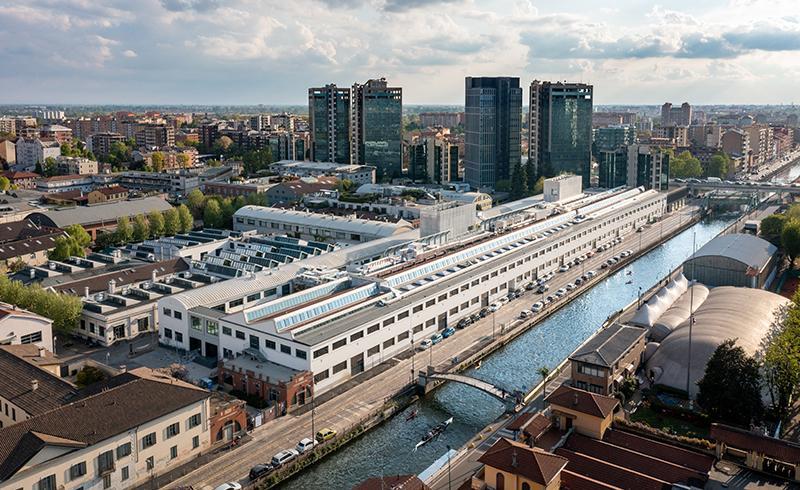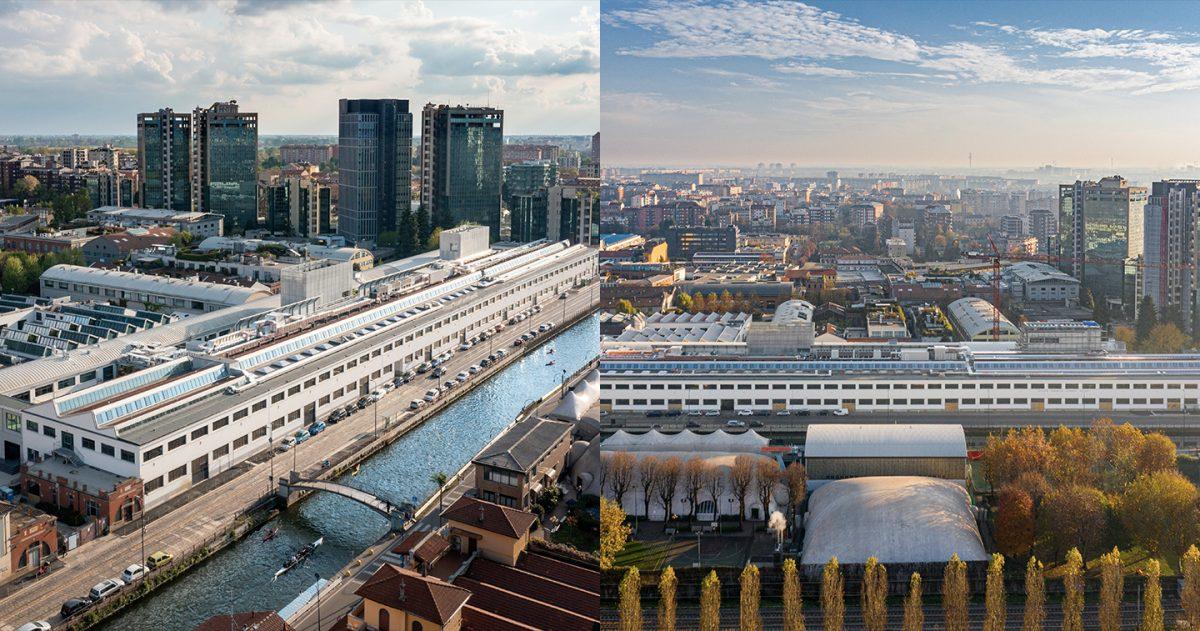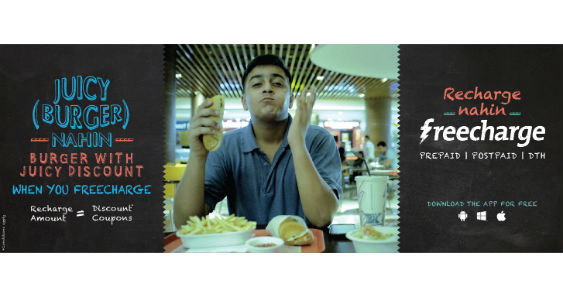MILAN, ITALY — WPP today marked the opening of its new Milan Campus, a modern and innovative hub bringing together 35 WPP agencies and 2,000 people into a single location. The Campus provides unique spaces for co-creation, and has been designed to specifically enable greater collaboration and encourage creativity across teams for the benefit of clients.

Located within the historic district of San Cristoforo, the WPP Milan Campus is an important part of an urban redevelopment project in an abandoned industrial area where one of the most important factories of the city, the ceramics and homeware manufacturer Richard Ginori, formerly stood. The Campus, set out over a total area of 27,000 square metres (1.4 times taller than Torre Velasca, 1.6 times taller than Piazza Duomo, and as big as four football fields), has been renovated to reflect the historical and cultural heritage of this part of Milan.
Mark Read, CEO of WPP, said: “Our Milan Campus is designed for how people want to work in the future; designed to inspire people to do their best work, to collaborate and to learn from each other. It’s equipped with the latest technology and meets the highest environmental standards. Our newest Campus in Europe will regenerate this part of Milan, making it a destination for Italy’s creative talent and a destination for clients seeking out the best ideas and technology.”
During the Campus opening press conference, held by WPP CEO Mark Read, WPP Country Manager for Italy Simona Maggini, and WPP Chairman in Italy Massimo Beduschi, research conducted by The European House – Ambrosetti was presented, highlighting WPP’s contribution to the Italian economy.
Simona Maggini, WPP Country Manager for Italy, said: “I’m proud that an iconic building of Milanese industry has become the new home to our many talented people who work across WPP agencies. The Campus represents an ambitious refurbishment project aimed at regenerating an important urban area, which, through WPP’s investment, will create new opportunities that will have significant economic, employment, social and environmental impact to the city and to Italy.”

Designed by BDG architecture + design, a WPP company, and delivered by local partner 967arch, sustainability has been put at the heart of the redevelopment, with the Campus retaining the site’s existing unique architectural footprint while improving its environmental performance. Previously spread across nine different sites, the co-located agencies will have access to innovative work, social and event spaces equipped with the latest technology, and amenities including restaurants, a minimarket, ATM and a pharmacy.
Sustainability is one of the flagship principles of the Milan Campus, in line with WPP’s commitment to become net zero across its operations by 2025 and its entire supply chain by 2030. By reusing an existing building, WPP is avoiding the emission of thousands of tonnes of embodied carbon – equivalent to more than 30 percent of the building’s lifetime carbon emissions. The new Campus will be plastic free and consume less paper, and will be operated by LED lighting powered entirely from 100% renewable energy sources. As part of its environmental impact reduction programme, the Campus is expected to save 12,000 MWh of energy, 6,900 tonnes of CO2, 15 tonnes of waste and 13 million litres of water annually. In line with WPP’s campuses around the world, the new building aims to obtain BREEAM certification – an environmental assessment methodology designed to monitor, evaluate and certify the sustainability of buildings, which currently has only been awarded to fewer than 50 buildings in Milan.
To mark the official opening of the new Campus, WPP CEO Mark Read hosted the Mayor of Milan Giuseppe Sala, representatives of regional and city institutions, clients and partners of WPP at an evening event.
Giuseppe Sala, Mayor of Milan, said: “The creation of the WPP Milan Campus confirms once again our international competitiveness and the city’s ability to attract investment and work. In spite of the pandemic, this attitude has not changed and today we celebrate the move of all of WPP’s agencies into this Campus overlooking the Naviglio Grande – a new great sign of recovery. In these spaces, which have been completely redesigned while maintaining the original structure of the old factory, people will collaborate at the highest levels of the communication, marketing and advertising industry. The WPP Campus, like other important headquarters born in former industrial areas, is changing the economic landscape in Milan, but not its attitude to always be the centre of what happens in our country.”
The four pillars of the research conducted by The European House – Ambrosetti
To coincide with the launch of the Milan Campus, The European House – Ambrosetti conducted new research on the contribution of WPP and the impact of its investment in the city of Milan across four main pillars:
- Economic Capital: the WPP Campus represents a new cultural and creative hub for Milan, a social impact operation capable of attracting and generating economic and financial value for the benefit of not only the city, but for the whole country.
- Environmental Capital: in line with WPP’s sustainability agenda, the WPP Campus will set standards to reduce the external environmental impact on the local ecosystem and surrounding areas, including through the reduction of water and energy consumption, minimising polluting emissions and optimising waste disposal.
- Social and Cultural Capital: WPP is already one of the leading employers in the creative industries sector in Italy, with the proportion of permanent employees above marketing and communications industry benchmarks. In addition, the company has focused on increasing the number of female talent at all levels and in particular at the highest executive positions; 6 out of 10 of all employees are women. In addition, WPP is committed to supporting the wellbeing of its people in Milan and improving the balance between work and life, with a split of 70% office-based working and 30% remote-working.
- Cognitive Capital: the WPP Campus will have a significant positive impact for both WPP’s talent pipeline and the surrounding area by establishing it as a creative destination in Milan and attracting new talent and businesses to the area. In addition, the development of the creative hub will further encourage strategic partnership between WPP agencies by enabling greater collaboration of ideas, expertise and creativity.










